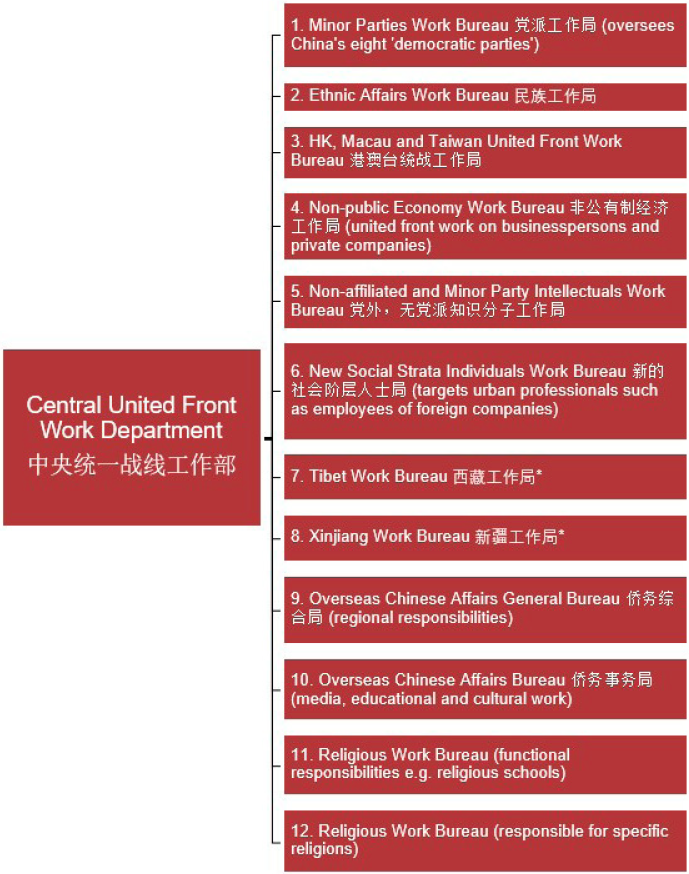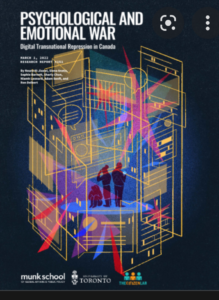 China is increasingly targeting U.S. state and local officials in influence operations designed to further the objectives of the ruling Communist Party, according to a new report by a U.S. counterintelligence agency.
China is increasingly targeting U.S. state and local officials in influence operations designed to further the objectives of the ruling Communist Party, according to a new report by a U.S. counterintelligence agency.
China’s government invests heavily in conducting covert and overt influence operations targeting the United States through the Chinese Communist Party’s (CCP) United Front Work Department, the National Counterintelligence and Security Center (NCSC) said in a bulletin sent to state and local officials.
“Malign“ nations such as China and Russia are exploiting technology to further their geopolitical agendas and Britain’s response to the threat is “incoherent and muted,” said a report by UK parliamentarians.

National Endowment for Democracy (NED)
Autocratic states are intensifying their efforts to rewrite the rules that underpin international technology standards, particularly in fields such as 5G, 6G and surveillance equipment, said the report, “Encoding Values: Putting Tech at the Heart of UK Foreign Policy,” overseen by Tom Tugendhat, chairman of the House of Commons’ influential Foreign Affairs Committee.
“This is no dystopian fantasy but a current reality, and one that the Government has, so far, neglected to address,” said Tugendhat. “A battle between authoritarian and rights-based technological standards and values is being waged.”
Several reports have alleged that TikTok has become a haven for pro-Chinese Communist Party (CCP) propaganda and that the secret algorithm that drives it still suppresses content that runs afoul of the CCP’s political sensitivities on topics ranging from China’s abuse of Uyghur Muslims to the Tiananmen Square massacre, The Washington Post’s Josh Rogin reports.
“These invasive and pervasive technologies are increasingly central to the future of freedom globally — and free societies therefore need to raise their game in the setting of stronger norms and rules,” Christopher Walker, vice president at the National Endowment for Democracy (NED), told him.
 China is one of several states engaged in digital transnational repression, which is difficult to track, as many incidents aren’t reported, MIT Technology Review reports. But some institutions are working to show how much harm they can do—and how hollow the response from governments and law enforcement can be, it adds, citing a report (right) from Citizen Lab, a research group at the University of Toronto.
China is one of several states engaged in digital transnational repression, which is difficult to track, as many incidents aren’t reported, MIT Technology Review reports. But some institutions are working to show how much harm they can do—and how hollow the response from governments and law enforcement can be, it adds, citing a report (right) from Citizen Lab, a research group at the University of Toronto.
“Digital targeting has a serious impact on the well-being of victims, undermines their ability to engage in transnational advocacy work, violates fundamental rights such as the right to privacy, freedom of expression, and peaceful assembly, and increases the dangers faced by their family members and friends who remain within the country of origin,” the report concludes.
Digital disinformation techniques are diffusing and evolving at a rapid pace, adds Bradley Honigberg, a Strategic Communications Consultant with Deloitte’s Cyber and Strategic Risk Practice. Authoritarian regimes, particularly Russia and China, increasingly pursue new capabilities to project their disinformation operations more precisely at home and abroad, he writes for Just Security:
 Open societies rely on a shared basis of factuality to function effectively, especially during inflection points like national elections and the organized transitions of power. How we collectively adapt to a world of AI-enhanced disinformation today will determine the future of liberal democracy, basic standards of truth, and our shared perceptions of reality.
Open societies rely on a shared basis of factuality to function effectively, especially during inflection points like national elections and the organized transitions of power. How we collectively adapt to a world of AI-enhanced disinformation today will determine the future of liberal democracy, basic standards of truth, and our shared perceptions of reality.
A new documentary from the BBC – The Whistleblowers (below) – includes startling details of high-level corruption and systematic malfeasance within the United Nations, including UN Human Rights Council official Emma Reilly’s revelation that her boss countermanded her refusal to let Chinese officials see the names of Uyghur activists due to attend a UNHRC hearing. Her fears proved to be legitimate when the family of leading Uyghur activist Dolkun Isa was targeted.
Concern over China’s role in the world is one of the few bipartisan issues remaining on Capitol Hill, analyst Philip Mousavizadeh writes for Just Security. In just the last few weeks, members of both parties have introduced legislation that would overhaul American policy towards Taiwan and firmly commit the United States to standing by Taiwan. The stakes involved in U.S. policy on China, coupled with the inflamed rhetoric as tensions rise, is only further evidence that the relationship with China requires delicate handling.







